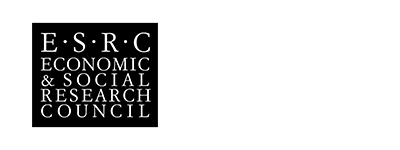Authored by Sarah Bell
As we approach Christmas 2019, it seems a good time to reflect on some of the activities that have happened in the year after completing the funded phase of the Sensing Nature project.
Perhaps the most notable was the launch of our ‘Nature Narratives’ audio description and visual awareness guidance in April this year. The aim of the guidance is to support natural heritage sites to promote inclusive multisensory nature experiences amongst people with sight impairment, whilst also raising awareness of these types of settings as places for everyone.
During the project, we co-designed and delivered tailored visual awareness and audio description training workshops at four contrasting case study sites around the country: Leighton Moss RSPB reserve, Sherwood Forest, Durlston Country Park, and Sheffield Park Gardens. The written guidance produced through these activities is available online and is informing ongoing work by project partners, VocalEyes, Andy Shipley and the RSPB.
Building on this work, we have recently secured some initial funding to develop a new network designed to encourage more socially inclusive landscape decision-making to support health and wellbeing amongst diverse individuals and groups. Including a range of activities over the next two years, the new ‘Unlocking Landscapes Network’ has been funded by the Arts and Humanities Research Council to explore four key questions relevant to landscape policy and practice:
How is landscape sensed and made sense of by diverse individuals and groups?
What are the cultural historical underpinnings of landscape experience?
What are the tensions between personal and collective landscape meanings?
How can we learn from human diversity to facilitate genuine landscape inclusion that moves beyond basic access provision?
Through the network, we hope to explore some of the important discussions that were touched on within the fantastic ‘Now for Nature’ conference that I was lucky to be part of in London in September this year. Organised by the inspiring youth-led nature network, ‘A Focus on Nature’, the conference demonstrated both challenges and opportunities for enhancing inclusivity across the nature sector.
From an academic perspective, it has been a busy year of developing new teaching modules, at both undergraduate and postgraduate levels, including lecture design, delivery, marking, moderation and supervision. In each of the modules that I have lead, I have been able to incorporate new activities to raise more critical awareness around the geographies of disability. Module discussions have highlighted the role of human nature in creating unnecessary barriers to participation in everyday life, and the collective benefits of adopting more affirmative approaches to human diversity, disability and social inclusion.
In the quieter times, I have continued writing up key findings from Sensing Nature in academic journals and book chapters, in order to complement the practical project outputs that I prioritised in the final year of the study (all available to download online). As discussed in the new Reflections page of the website, these have included discussions around opportunities (and barriers) to experiencing a sense of freedom with nature, feeling the elements, developing intricate skills and sensibilities, and forging new nature relationships through sound and touch. Next year I’m looking forward to writing the final papers sharing key findings around changes in nature experiences, health and wellbeing through the life course.
Along the way this year, I’ve also heard about some really exciting initiatives and activities, from the fantastic Bryan’s Quest, to the brilliant Sensory Walks developed by Sense and The Outdoor Guide, the beautiful avian soundscapes shared by enthusiastic birder Graham Taplin, the much-needed ‘Messy and Muddy’ children’s guide produced by the RNIB, the intriguing ‘Whispering Woods’ Braille Trail (in the US), and the ‘Wild Way’ in Germany.
With a little more time for research again at the beginning of 2020, I’m looking forward to building on this work, and to launching our new Unlocking Landscapes network. If you would like to hear more about it, or to access any of the Sensing Nature outputs produced so far in alternative formats to those available online, please do get in touch, either via the website or via email on Sarah.Bell@exeter.ac.uk.
Wishing everyone a very Happy Christmas and a super New Year!



